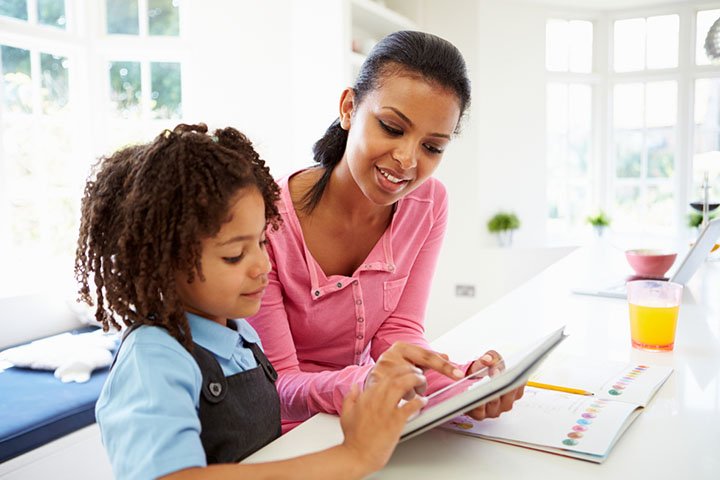
Image: Shutterstock
Parenting is a rewarding yet challenging journey that requires immense patience. In the whirlwind of daily responsibilities and the unpredictability of raising children, it’s natural to feel overwhelmed and occasionally lose your composure. However, by embracing patience, you can foster a more harmonious and fulfilling family dynamic. In this article, we will explore effective strategies to become more patient as a parent, allowing you to navigate the ups and downs of parenthood with grace and understanding.
Understanding The Importance Of Patience
Image: Shutterstock
Patience is an essential tool for parenting, to create a nurturing environment where children can thrive. As parents, our patience serves as a steady anchor, providing guidance, support, and emotional stability. It allows us to respond thoughtfully, teaching our children self-control and the importance of managing emotions. Through patient listening and open dialogue, we build trust, strengthen our connection, and appreciate their unique personalities. Patience also teaches our children resilience, delayed gratification, and the value of perseverance. By embodying patience, we empower them with life skills, nurture their individuality, and create a harmonious family dynamic where everyone can flourish.
Tips To Become More Patient As A Parent
1. Practicing Self-Care
Image: Shutterstock
As parents, we often put our needs on the back burner. However, neglecting self-care can deplete our patience reserves. Taking time for ourselves, engaging in activities we enjoy, and prioritizing our well-being allow us to recharge and approach parenting with a renewed sense of calm.
2. Embracing Mindfulness
Image: Shutterstock
Mindfulness is the art of being fully present at the moment without judgment. Incorporating mindfulness into our parenting journey helps us respond rather than react. By paying attention to our thoughts and emotions, we can better understand the triggers that lead to impatience and choose a more compassionate response.
3. Setting Realistic Expectations
Image: Shutterstock
Unrealistic expectations often pave the way for impatience. Recognize that children are individuals with their own unique strengths and limitations. Setting realistic expectations for their behavior, development, and milestones can alleviate frustration and help us appreciate their progress.
4. Practicing Effective Communication
Image: Shutterstock
Clear and open communication is crucial in fostering patience. Encourage open dialogue with your children, where they feel comfortable expressing their thoughts and emotions. By listening attentively, we can better understand their perspective, address their concerns, and defuse potential conflicts.
5. Developing Empathy
Image: Shutterstock
Empathy is a powerful tool for building patience. Strive to see the world through your child’s eyes, understanding their struggles, fears, and desires. Empathy allows us to respond with compassion and support, creating a nurturing environment that fosters patience and understanding.
6. Utilizing Time-Outs
Image: Shutterstock
When emotions run high, both for parents and children, taking a short break can be beneficial. Stepping away from a challenging situation allows us to gather our thoughts, regulate our emotions, and approach them with renewed patience and clarity.
7. Practicing Gratitude
Image: Shutterstock
Amidst of parenting challenges, it’s easy to lose sight of the joys and blessings. Cultivating a sense of gratitude helps shift our focus to the positive aspects of our journey. Taking a moment each day to reflect on the things we are grateful for can reframe our perspective, reducing impatience and increasing contentment.
8. Seeking Support
Image: Shutterstock
Parenthood can be isolating, so seek support from friends, family, or parenting communities. Connecting with others who understand the challenges of parenting provides a valuable support system for cultivating patience and navigating the journey with understanding. Remember, you’re not alone, and reaching out can make a world of difference in your parenting experience.
9. Embracing Mistakes And Learning Opportunities
Image: Shutterstock
Parenting is an ongoing learning process, and mistakes are inevitable. Rather than succumbing to guilt or frustration, view these moments as valuable learning opportunities for both you and your child. Embracing mistakes with grace and using them as stepping stones to growth can enhance your patience and strengthen your bond with your child.
The Benefits Of Being Patient As A Parent
1. Building Stronger Relationships
Image: Shutterstock
Patience fosters deeper connections and stronger relationships with our children. By being patient, we can create an atmosphere of trust, understanding, and open communication. Our children will feel comfortable sharing their thoughts and emotions, knowing they will be met with patience and empathy. This will strengthen the parent-child bond and create a solid foundation for a lifelong relationship.
2. Enhancing Emotional Well-being
Image: Shutterstock
Patience promotes emotional well-being for both parents and children. When we approach challenging situations with patience, we model healthy coping mechanisms and emotional regulation skills. This enables our children to develop resilience, problem-solving abilities, and a positive outlook on life. As parents, practicing patience reduces stress levels, enhances our own emotional well-being, and creates a harmonious home environment.
Becoming a more patient parent requires conscious effort and self-reflection. By incorporating these strategies into our parenting journey, we can cultivate patience, understanding, and compassion. Remember, patience is not a destination but a lifelong practice. As we navigate the challenges of parenthood, let us embrace patience as a guiding light, empowering us to create a loving and nurturing environment for our children to flourish. Let us know in the comments how you deal with your children patiently!
























